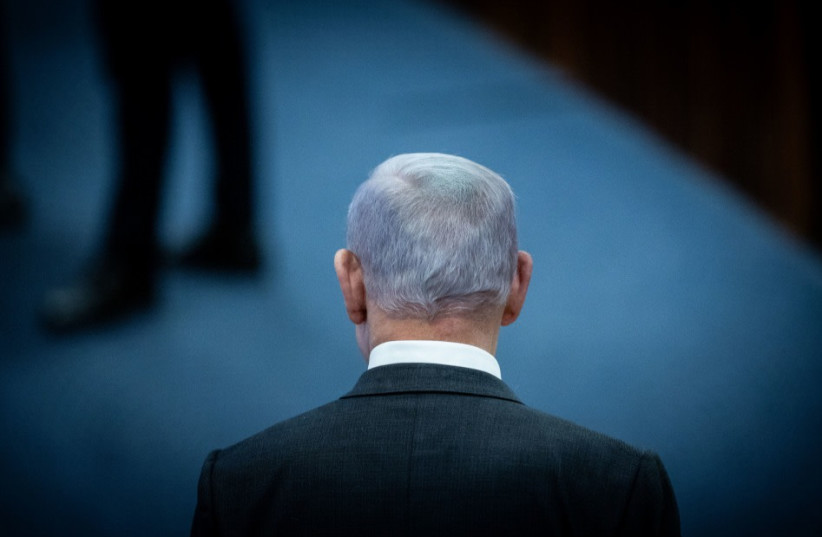A new book titled The End of Israel charts the growth of author Bradley Burston’s personal conviction that Israel’s prime minister, Benjamin Netanyahu, has led his nation to its destruction. In fact, he subtitles his book Dispatches from a Path to Catastrophe. Burston, a veteran US-born Israeli journalist, is in despair about Israel’s future.
The name “Netanyahu” arouses in him contempt and ice-cold fury. He maintains that Benjamin Netanyahu has sacrificed his country for the sake of personal political longevity. It is also his view that Hamas got the measure of the man early on.
“When Hamas leaders saw that Benjamin Netanyahu would exploit violence and domestic disunity for political gain,” he writes, “and that he would work as passionately as they to render impossible a just peace between Israeli and Palestinian states, Hamas knew that he was their man.”
Netanyahu: Hamas's man?
Burston builds his case through the material he wrote during the four major clashes between Hamas and Israel prior to the current war – in 2008-9; 2012; 2014; and 2021 – together with his negative assessment of Netanyahu’s tactics during the eight general elections that have given him such an extensive run of power.
In what he wrote during the 2014 Israel-Hamas clash, he might almost be referring to the present situation. The issues were the same – “Gaza is an unstaunched bleed,” writes Burston, who goes on to blame extremists on both sides for ensuring that “there can be no peace based on two states, nor any peace here at all, ever.”

Israel’s incursion into Gaza in 2014 induced in Burston a sort of “plague on both your houses” reaction. He quotes a Hamas official saying “We will continue to batter the homes of the Zionists until the last Zionist leaves Palestinian land,” and balances this with an article by then-deputy speaker of the Knesset, Moshe Feiglin: “Subsequent to the elimination of terror from Gaza, it will become part of sovereign Israel and will be populated by Jews.”
Burston has no truck with Israeli politicians who do not see Palestinians as fellow human beings and neighbors. Yet even those of his readers who endorse his stance on this might find some of his views difficult to swallow. Take, for example, what he has to say about flags in Part Nine.
Writing in 2018, he starts: “It took Benjamin Netanyahu to get me to take a long look at the flag of Palestine, and to see the beauty in it.” Burston believes that Netanyahu fears the idea of the Israeli and Palestinian flags “waving one beside the other.” For Burston the idea is inspirational, “an earthquake in the making. It says there is a way out of this.”
Later he writes: “There was a time when the flag of the State of Israel was a direct source of inspiration, of welcome of hope.... No more.”
Burston was born and raised in Los Angeles and graduated from the University of California at Berkeley in 1976. He immigrated to Israel and studied medicine for two years before becoming a professional journalist. During the First Intifada (1987–1993), he served as Gaza correspondent for The Jerusalem Post, and he was also the Post’s military correspondent during the Gulf War (1990-1991).
In 2000, Burston began working for the more Left-leaning Haaretz, where he was a popular writer and columnist for 19 years. The book consists largely of articles written in the period 2000–2019 together with a few published later, carefully arranged and edited into 18 themed sections, most with a contemporary introductory or explanatory note.
For the substantial proportion of Jewish people, in Israel and worldwide, who feel alienated by Netanyahu’s government, dependent as it is on parties and individuals with far-Right views, Bradley Burston’s book is a welcome expression, in uninhibited, striking terms, of the point of view they espouse. Others not in sympathy will reject much of what he says. One way or another, The End of Israel is undeniably thought-provoking and, in a world where exchanges of differing views is being increasingly inhibited, to be welcomed. ■
- The End of Israel: Dispatches from a Path to Catastrophe
- Bradley Burston
- Fryman Press, November 30, 2023
- 390 pages; $18.95
